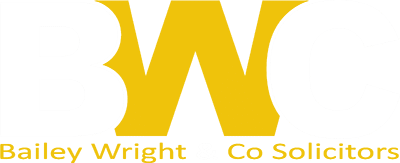Modern Slavery and Human Trafficking
Modern Slavery and Human Trafficking – Birmingham
Modem Slavery and Human Trafficking is frighteningly common. They are both criminal offences. it happens when people trick, coerce, deceive and/or force individuals against their will into a life of abuse, servitude and Inhumane treatment.
Victims
Both children and adults can be victims of trafficking.
Victims may not be aware that they are being trafficked or exploited. They may have consented to elements of their exploitation, or simply accepted their situation. Children cannot give consent to being exploited. Many victims are threatened, or violence is used against them to ensure that they comply with the demands upon them. Victims are often housed is a single overcrowded place, but they are kept away from other people so that they cannot report their situation. Many trafficked people from other countries cannot speak English and they have their passports and identify documentation retained so they are unable to escape.
The priority for anyone who has been the victim of modem slavery or trafficking is to get to somewhere safe and to have support to plan their future.
Signs of Potential Trafficking or Slavery
- The victims ID documents or passport are kept by someone else.
- The victim acts as if they were instructed or coached by someone else or someone else speaks on their behalf.
- The victim receives little or no payment for their work and does not have control of their money
- The victim does not have freedom of movement
- The victim is unable to have contact with friends or family or has limited social interaction or contact with people outside their immediate environment
- The victim has been harmed or deprived of food, water, sleep, medical care or other life necessities
Offences
The Modern Slavery Act 2015 creates criminal offences of Slavery, Servitude and Forced or Compulsory Labour and Human Trafficking. These crimes include holding a person in a position of slavery, servitude forced or compulsory labour, or facilitating their travel with the intention of exploiting them soon after. Human trafficking may involve an international cross-border element although not necessarily so and it is possible for someone born in this country to be a victim of modern slavery .
Categories of exploitation linked to human trafficking
- Sexual exploitation
- Forced labour
- Domestic servitude
- Organ harvesting
- Child related crimes such as child sexual exploitation, forced begging, illegal drug cultivation, organised theft, benefit frauds etc – some of these could also apply to adults
- Forced marriage and Illegal adoption
There are cases of exploitation that would not be considered modern slavery e.g. someone may choose to work for less than the national minimum wage, or in poor conditions, without being forced or deceived.
Commonly, victims of modem slavery will have been misled Into travelling to this country with promises of a better life and then exploited. They might be forced to work long hours in dangerous conditions without proper equipment and training. They may be made to work for little money. They will not benefit from the employment laws designed to protect them.
Compensation
The Modern Slavery Act allows victims of Modem Slavery and Human Trafficking to seek compensation through Slavery and Trafficking Reparation Orders. These require a person who has been convicted of a criminal offence under the Act to pay compensation to a victim of Modem Slavery or Human Trafficking. Upon a conviction, prosecutors can seek orders for compensation against offenders and orders to confiscate the profits made from their criminal activities.
Civil Compensation Claims
Victims of human trafficking and modem slavery can make Criminal Injuries Compensation Claims
The Criminal Injuries Compensation Scheme alms to compensate victims of crimes of violence or sexual offences. In order to claim a victim must have sustained physical or mental injuries as a result of a crime, which could include the slavery or human trafficking.
Assistance for Victims / The National Referral Mechanism lNRM)
The National Referral Mechanism (NRM} Is a framework for identifying victims of human trafficking or modem slavery and helping them to receive the appropriate support. There is a process for referral to the NRM.
The decision about whether someone is a victim of trafficking is made by “competent authorities”. In the UK the competent authorities are the UK Human Trafficking Centre (UKHTC) and the Home Office. Referrals to the NRM are made to Competent Authorities (CA) and can only be made by authorised agencies known as First Responders. In the UK, First Responders include the police, the UK Border agency, The Home Office, social services and certain Non-Governmental Organisations. If you are not a first responder and you believe you have identified a victim of trafficking, then It is necessary to refer the person to a first responder In order for them to be referred Into the NRM.
We at Bailey Wright & Co Solicitors can offer advice and assistance under our Legal Aid Contracts in relation to:-
- Compensation claims
- Challenges to NRM decisions
- Challenges as to appropriate support
- Employment Law Claims
- Injunctions
&, Criminal Injury Compensation Claims
For further Information or to discuss matters further, please contact us on 0121 270 1566 or email Phil Storey or Karen Bailey
